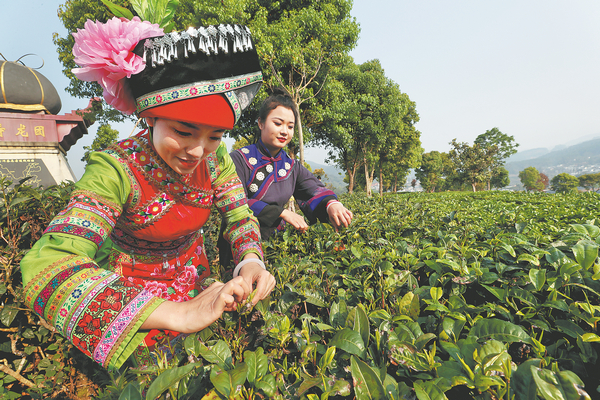

Su Guowen, 80, a Blang ethnic group leader in Jingmai Mountain in Pu'er, the main tea producing area in Yunnan, says that when he was a boy, he had to walk a long way to a tea trading market to sell tea with his family, from which horse caravans would take the commodity to South Asian countries.
"My father told me that there was an old tea trail more than 800 years old not far away from my village," says Su, whose family has cultivated tea trees for 1,800 years according to the ethnic group's records.
On the trail, horse hooves left deep indentations, round and deep in either the stone stairs or cobbled lanes. Marks of horseshoe prints and burned stones nearby are important tokens for Chen in identifying an ancient tea route.
"The caravans took little food with them. They cooked food during the commercial journey, and those burned stones are firm evidence of this."
The trek was not just arduous but perilous, many tea porters never making the return journey.
Chen says that on his trek, his team encountered large wild animals, endured extreme weather, managed to avoid mud slides and struggled with the physical stresses of traveling at high altitude.
"When we got back to Shangri-La, many people were amazed that all six of us had returned in one piece," Chen says.